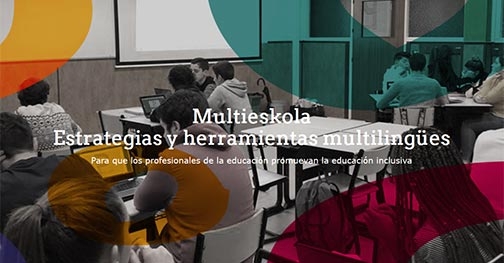Linguistic adaptation is a central theme in the different stages of education, but especially in secondary education and initial vocational training. Improving the linguistic adaptation process of immigrant students can contribute to improving not only academic outcomes but also social inclusion, both within and outside the center. However, it requires the design of suitable environments and teachers prepared to face the challenges of multilingualism, which are summarized in:
- The need for all students to develop language skills, both in the mother tongue and in other languages to facilitate their social and work inclusion
- The development of trilingual educational models and models of excellence that clearly respond to current social and labor demands
- Respect for minority languages, official and unofficial, which coexist in many European regions in educational settings (formal and informal).
The main objective of MULTIESKOLA project is to respond to the new challenges of European schools and initial VET centers by providing resources for the development of inclusive education and training from the perspective of multilingualism.
The specific objectives include:
- To identify, analyze and propose recommendations and guidelines for schools and initial VET centers for the design of effective multilingual education programs
- To develop resources and didactic materials to improve the professional skills of the teachers of these centers
- To promote continuous and peer learning through the creation of specific environments that allow interaction between teachers, experts, the educational community in general and representatives of parents.
The partnership includes partners from European regions with more than one official language: Basque Country, Scotland, Belgium and Poland.
The main result of the project is a TOOLKIT – Educational resources for teachers. This result will be supported online, and will include a part of training, along with resources and practical tools that teachers can use in their classrooms.
